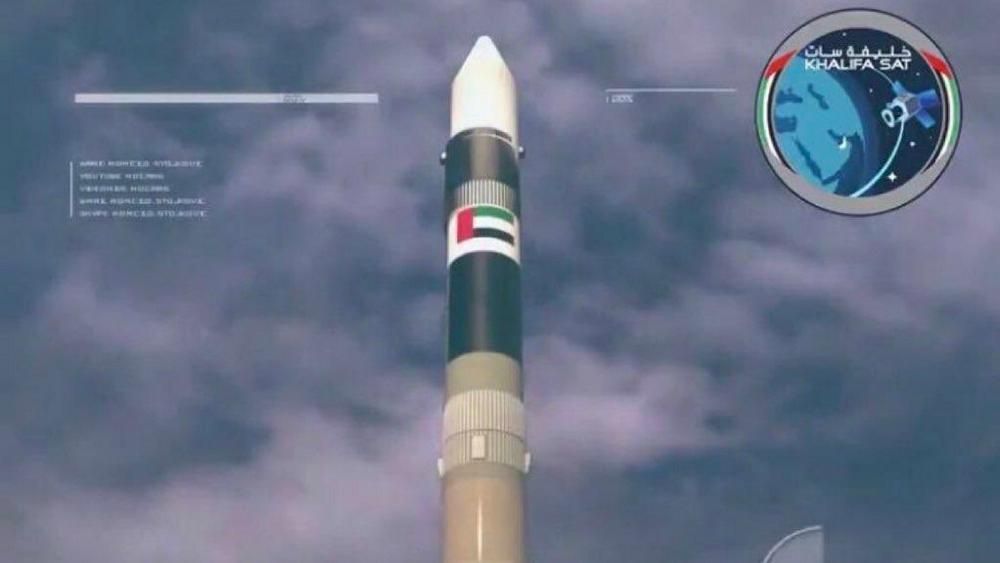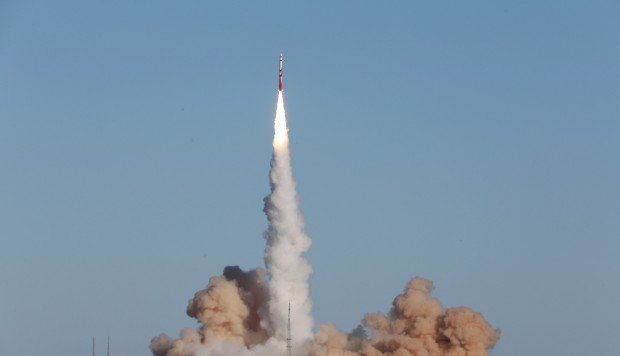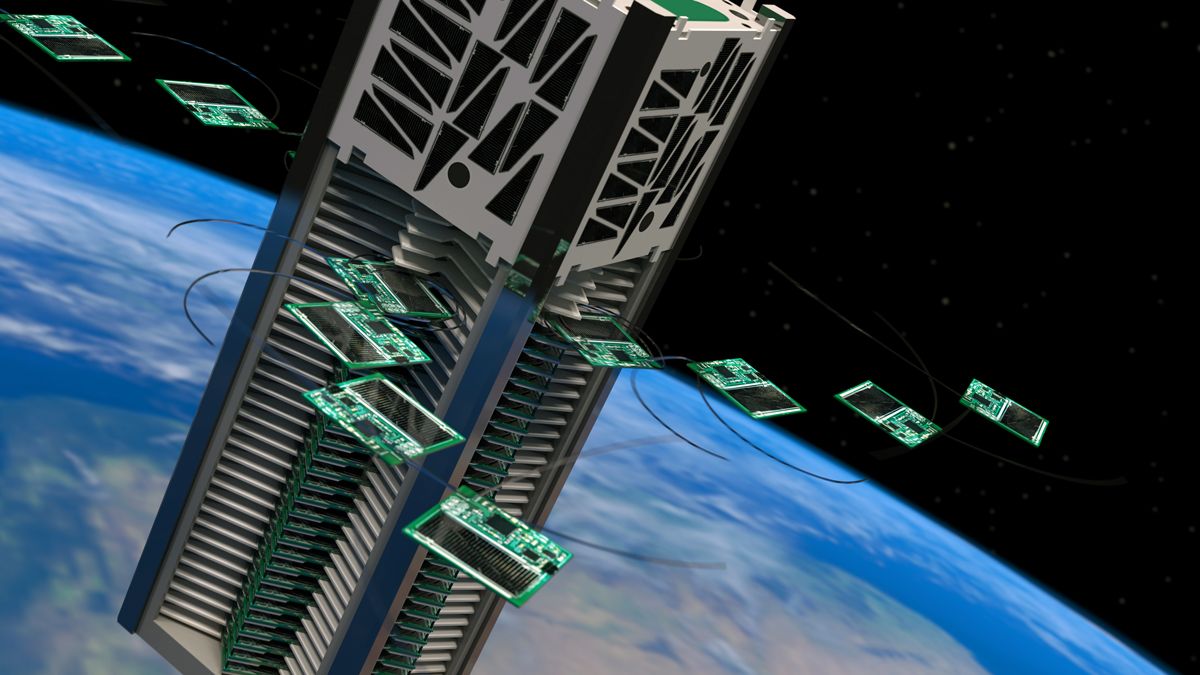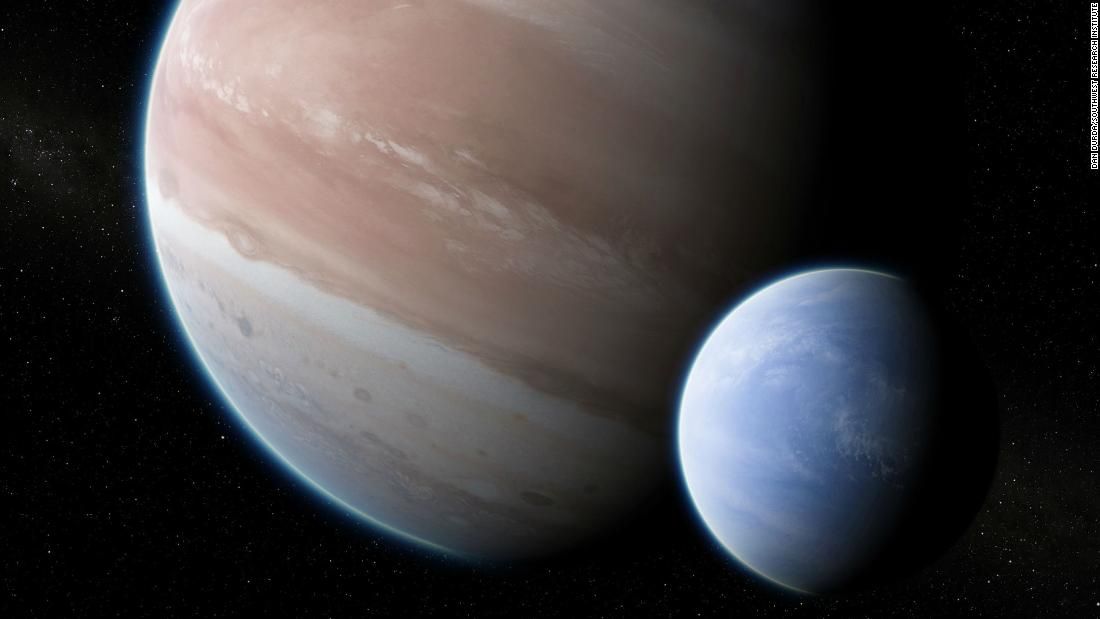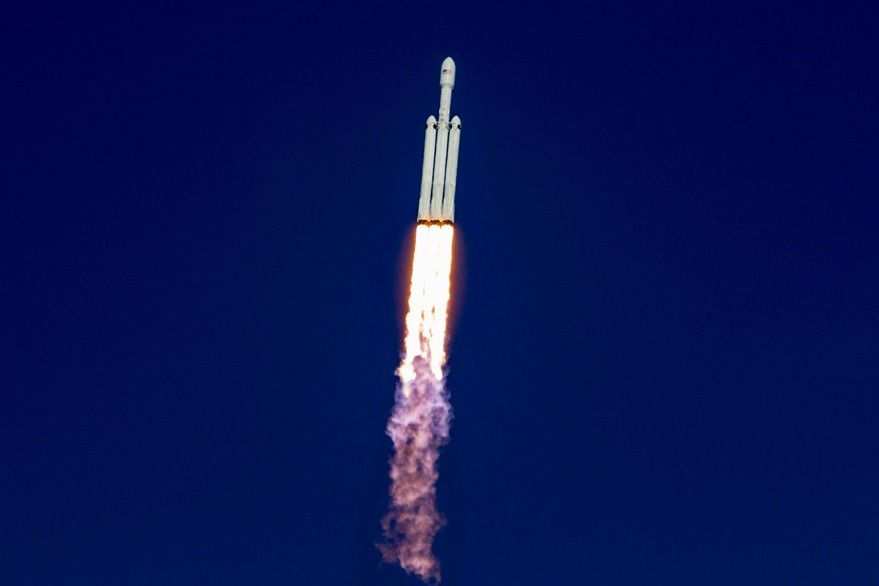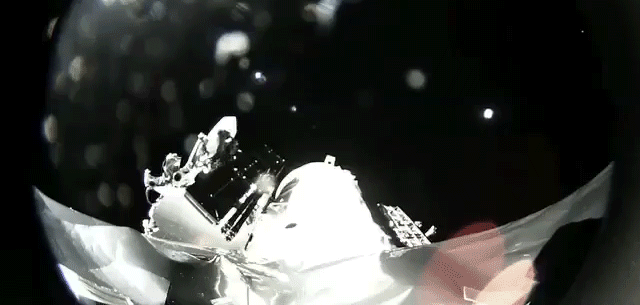Archive for the ‘satellites’ category: Page 156
Oct 29, 2018
First Emitrati-made satellite launched into space
Posted by Genevieve Klien in categories: satellites, sustainability
KhalifaSat, the first-ever Emirati-manufactured satellite successfully launched into space from Japan’s Tanegashima Space Centre on October 29.
As well as KhalifaSat, the H-2A rocket also launched carrying Japan’s environment satellite, GoSat-2.
KhalifaSat is an Earth observation satellite set to monitor environmental changes, such as the effects of global warming in the North and South Poles.
Continue reading “First Emitrati-made satellite launched into space” »
Oct 29, 2018
China’s first private rocket mission to outer space ends in failure
Posted by Derick Lee in categories: business, military, satellites
China’s aerospace industry has traditionally been the domain of state-owned institutes and enterprises, but a huge amount of investment has poured into the private sector since 2015 when Beijing announced a national strategy to integrate military and civilian businesses.
Landspace Tech’s ZQ-1 took off from Jiuquan Satellite Launch Centre at 4pm on Saturday carrying a small satellite for state broadcaster CCTVMission failed due to problem with rocket’s third stage, company says.
Oct 28, 2018
The Tiny Satellites That Might Fly to Another Solar System
Posted by Genevieve Klien in category: satellites
Scientists hope the world’s smallest satellites will boldly go where no probe has gone before.
Ben Bishop
During an interview at a Boston- area café, Zac Manchester apologized for not bringing along a copy of his latest satellite — one of many duplicates due to enter orbit this fall during a mission to the International Space Station. “Don’t worry,” says Manchester, a Stanford University professor of aeronautics and astronautics. “I’ll put one in an envelope and mail it to you.”
Oct 24, 2018
It Could be Possible to Transfer Data Through Gravitational Waves
Posted by Genevieve Klien in categories: physics, satellites
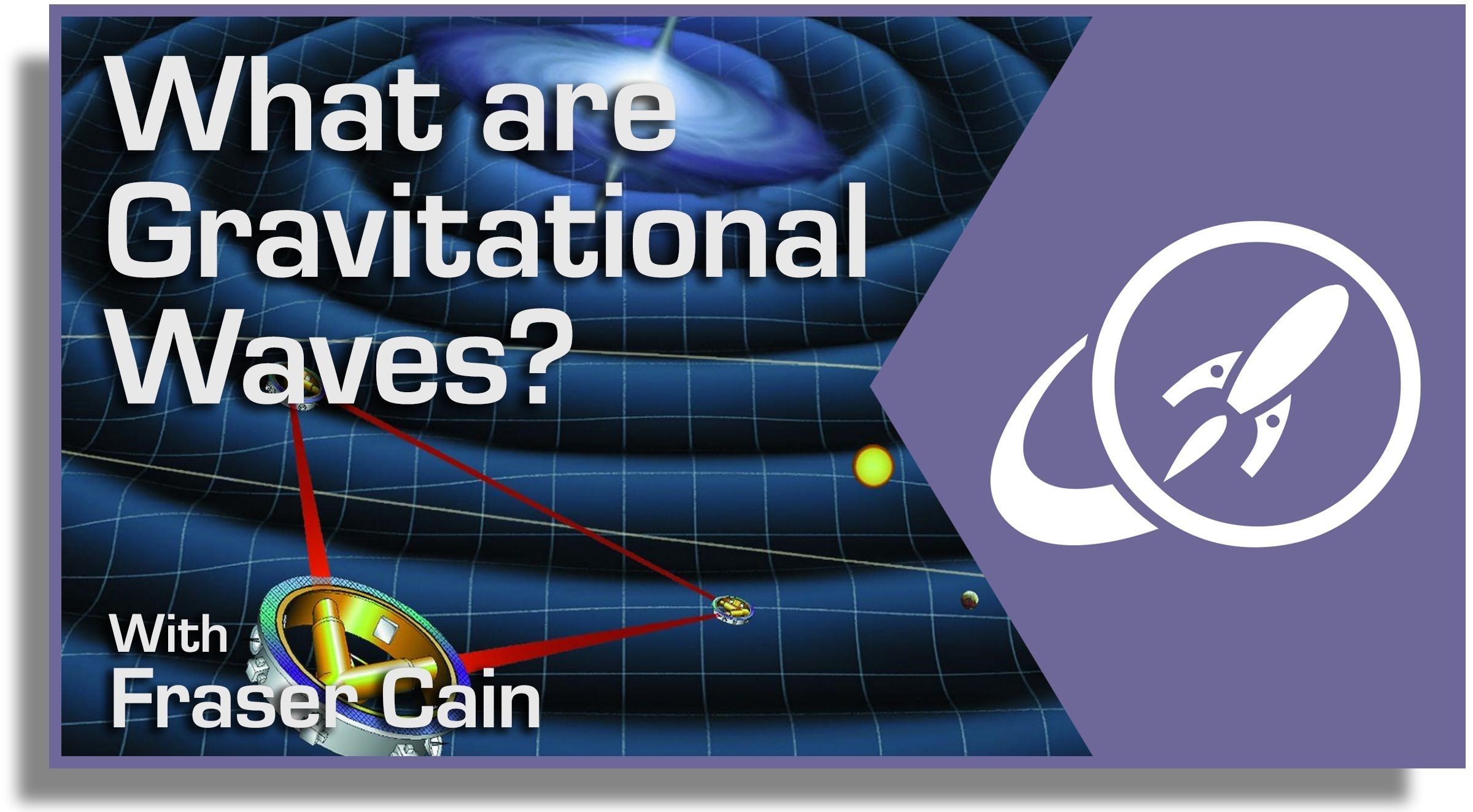
This discovery not only opened up an exciting new field of research, but has opened the door to many intriguing possibilities. One such possibility, according to a new study by a team of Russian scientists, is that gravitational waves could be used to transmit information. In much the same way as electromagnetic waves are used to communicate via antennas and satellites, the future of communications could be gravitationally-based.
The study, which recently appeared in the scientific journal Classical and Quantum Gravity, was led by Olga Babourova, a professor at the Moscow Pedagogical State University (MPSU), and included members from Moscow Automobile and Road Construction State Technical University (MADI) and the Peoples’ Friendship University of Russia (RUDN).
Continue reading “It Could be Possible to Transfer Data Through Gravitational Waves” »
Oct 19, 2018
First suspected ‘exomoon’ discovered 8,000 light-years away
Posted by Michael Lance in category: satellites
For the first time, astronomers have discovered what could be an exomoon, a moon outside our solar system. The exomoon was found around the gas giant exoplanet Kepler-1625b, which orbits a star 8,000 light-years from Earth.
Although moons are common in our solar system, which has nearly 200 natural satellites, the long search for interstellar moons has been an empty one. Astronomers have had success locating exoplanets around stars outside our solar system, but exomoons are harder to pinpoint because of their smaller size.
Oct 17, 2018
Swedish firm buys Falcon Heavy launch
Posted by Genevieve Klien in category: satellites
WASHINGTON — A Swedish company with plans for a geostationary communications satellite announced Oct. 16 a contract with SpaceX for a Falcon Heavy launch no earlier than the fourth quarter of 2020.
Ovzon of Solna, Sweden, has not yet purchased the satellite, but paid Eutelsat $1.6 million earlier this year to move one of its satellites to an unspecified Ovzon orbital slot to preserve spectrum rights at that location.
In a statement, Ovzon CEO Per Wahlberg said procurement of the company’s first satellite is “in the final stage,” and that production of an advanced onboard processor started earlier this month.
Oct 14, 2018
SpaceX board member says Starlink prototype satellites “are working wonderfully”
Posted by Genevieve Klien in categories: innovation, satellites
Speaking in a Satellite Innovation 2018 keynote, long-time SpaceX investor and board member Steve Jurvetson made a quiet but significant comment about the company’s Starlink satellite constellation efforts, stating that the first two prototype spacecraft – currently in orbit – “are working wonderfully.”
Standing in contrast to recent speculation that SpaceX’s Starlink project had experienced major failures with on-orbit hardware, Jurvetson may be a biased source but still has a major vested interest in SpaceX’s long-term success – supporting billions dumped into a satellite constellation with no real returns in sight would serve to seriously harm his significant investments in the company.
He would say that? Maybe, but @dfjsteve Jurvetson, early @SpaceX & @planet investor, told Satellite Innovation conference Oct 10, regarding SpaceX’s two Starlink test sats launched in February: pic.twitter.com/WHzJlPUEPA
Oct 12, 2018
Scientists Turn Nuclear Waste into Diamond Batteries That’ll Last for Thousands of Years
Posted by Mary Jain in categories: biotech/medical, drones, nuclear energy, satellites
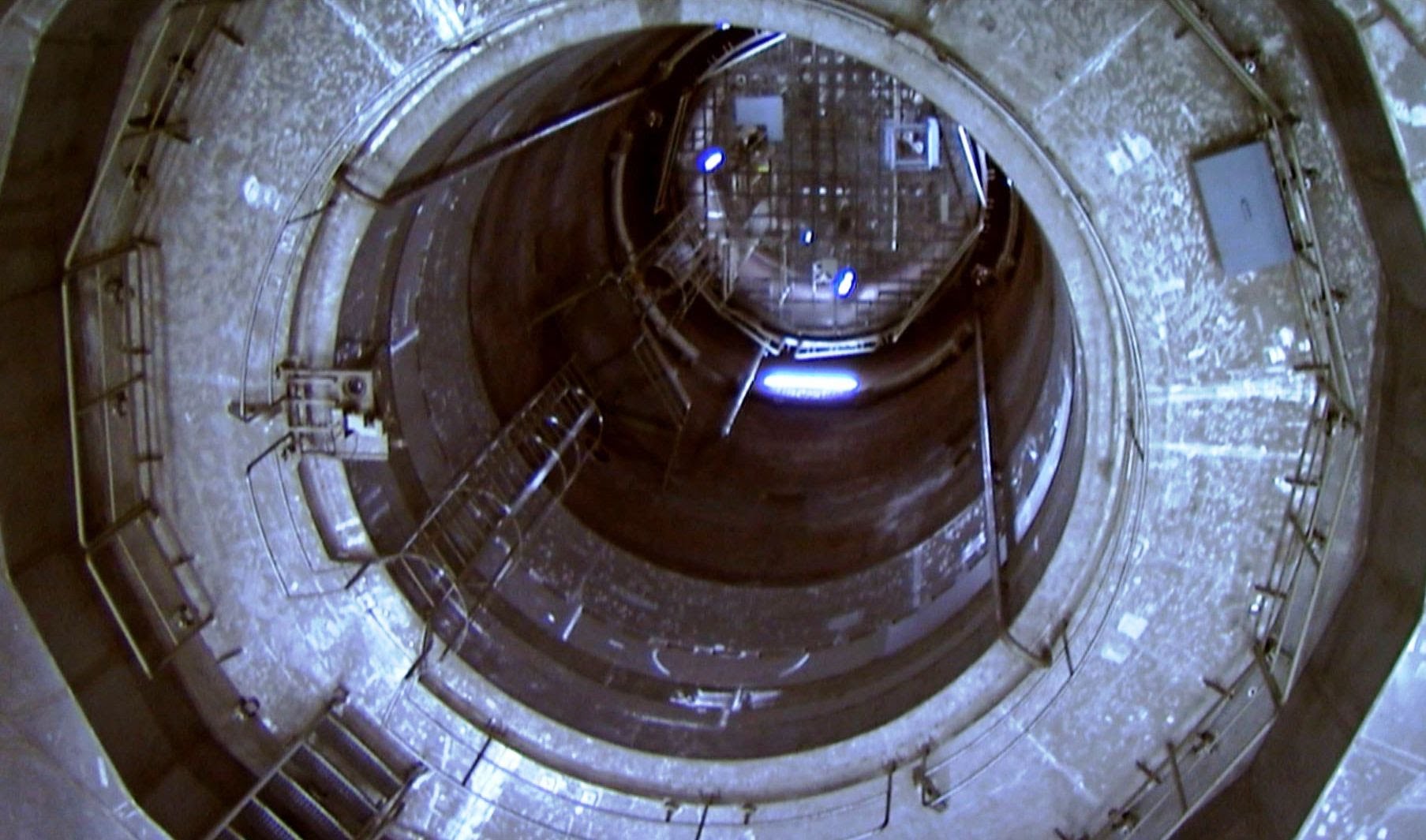
This technology may someday power spacecraft, satellites, high-flying drones, and pacemakers.
Oct 10, 2018
Elon Musk Shares SpaceX Falcon 9 Image That Highlights Its True Size
Posted by Genevieve Klien in categories: Elon Musk, satellites
SpaceX’s Falcon 9 is impressive, but based on launch photos it can be hard to get a sense of the true scale of the craft. On Wednesday, CEO Elon Musk shared an image that shows himself alongside three figures, standing next to a freshly-landed Falcon 9. The image gives a clear indication of how the craft appears in real life.
Musk shared the image below with the caption “At Falcon LZ-1 Vandenberg on Sunday night with the Base Commander. Support of [United States Air Force] much appreciated.” The image was taken just after Sunday’s launch, which saw the SAOCOM 1A satellite sent up from the Vandenberg Air Force Base, before the first stage booster landed on the firm’s brand new west coast landing pad. The whole craft measures 229.6 feet tall, with a 12-foot diameter. The composite fairing, which houses the satellite entering orbit, measures 43 feet with a 17-foot diameter.
See more: Elon Musk Shares Incredible Photos From SpaceX’s Landmark Falcon 9 Launch.
Continue reading “Elon Musk Shares SpaceX Falcon 9 Image That Highlights Its True Size” »

